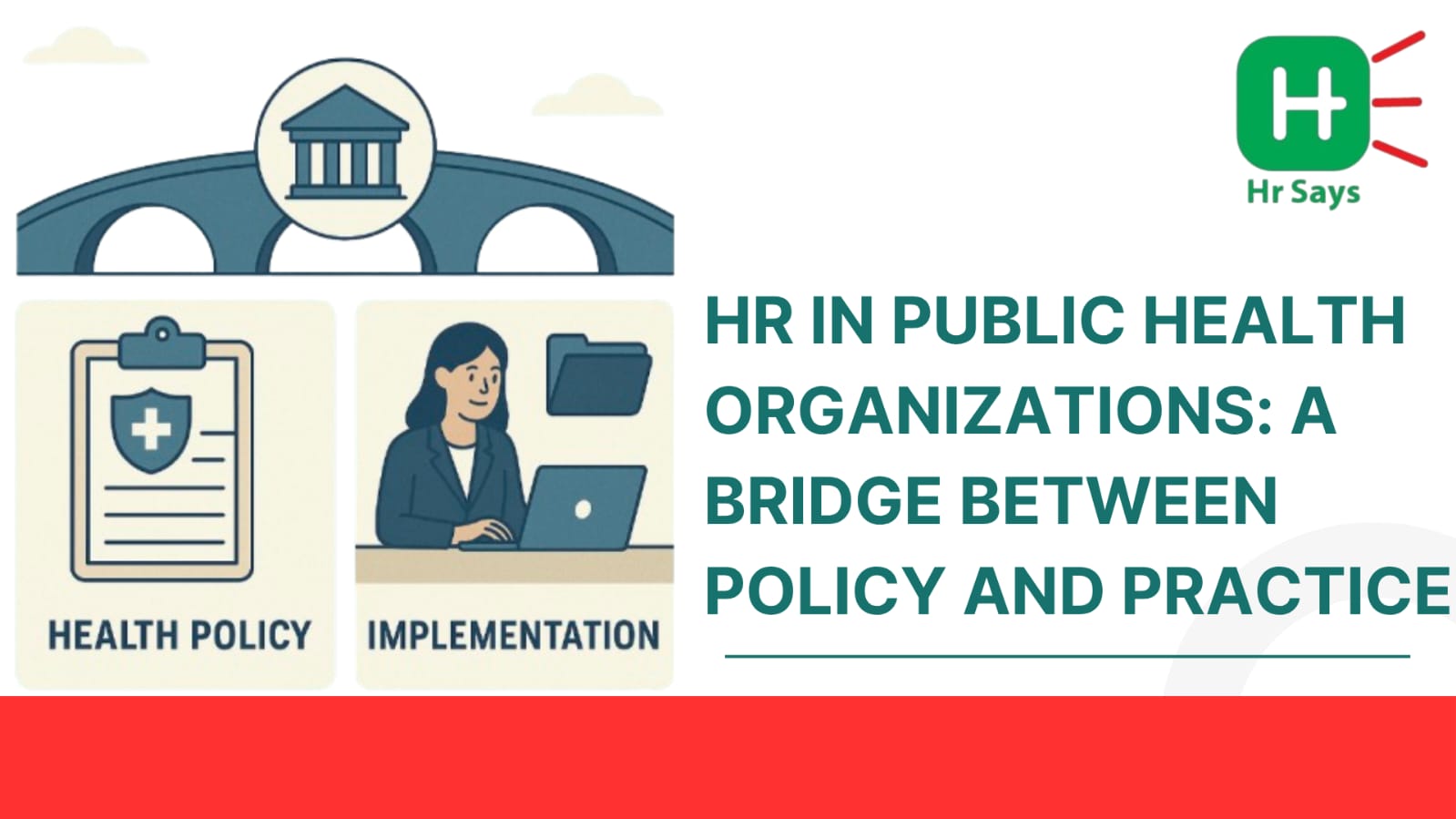What makes a health policy work on the ground? Not the paperwork. Not just the funding. It’s people. Trained, placed, protected, and managed by HR. Public health systems need structure. HR gives it shape.
The Unsung System Builder
HR in public health isn’t often in the spotlight. But without it, universal health coverage stays a dream. Hiring doctors is one thing. Keeping them? Quite another.
HR ensures:
● The right skills reach the right places
● Equity is maintained in staff deployment
● Gaps are flagged before they become disasters
Rural clinics, mobile units, disease surveillance teams—none run on policy alone. People power them. And HR makes sure they show up.
Walking the Line: Policy Meets People
Every health reform promises better outcomes. But someone must restructure the workforce when it happens. That someone is HR.
New health policies mean:
● Reassigning roles
● Upskilling staff
● Handling union concerns
● Redrafting contracts under new terms
And often, all of it at once. The role is not glamorous. But it’s essential. HR ensures that change lands softly.
Compliance Is Not Optional
In public health, compliance saves lives. From HIPAA in the U.S. to NABH accreditation in India,
rules run deep. Someone has to make sure staff follow them. That’s HR again.
It handles:
● Staff training in healthcare compliance
● Regular audits and updates
● Disciplinary procedures when protocols break
● Confidentiality safeguards in line with law
HR doesn’t set the law. But it ensures it’s lived daily.
Medical Innovation Demands People First
Robots won’t replace nurses. AI can’t counsel a grieving family. Innovation in public health still
needs people to work.
Medical innovation may change tools, but HR adapts the team. New tech brings:
● Job redesign
● Change management
● Safety protocols
● Cultural shifts
HR builds the human scaffolding around machines.
Equity Isn’t Automatic
Health equity sounds noble. But it needs structure, not slogans.
HR supports it by:
● Ensuring equal hiring from underserved communities
● Tracking workplace discrimination
● Promoting gender equity in leadership
● Supporting mental health across all levels
Equity has to be managed. And monitored. That’s where HR earns its quiet power.
Conclusion
Public health is a complex, living system. HR doesn’t treat patients. But it ensures someone does. It holds the line between vision and execution—between what’s ideal and what’s doable.
Without HR, policies stay words. With it, healthcare reaches people.
Not perfectly. But steadily.

 Public health doesn’t move on paper alone. HR plays a quiet but crucial role in turning policies into real-world care. Between regulations and reality, HR stands as the hidden link.
Public health doesn’t move on paper alone. HR plays a quiet but crucial role in turning policies into real-world care. Between regulations and reality, HR stands as the hidden link.








.jpeg)
.jpeg)

.jpeg)





.jpeg)



.jpeg)

.jpeg)



